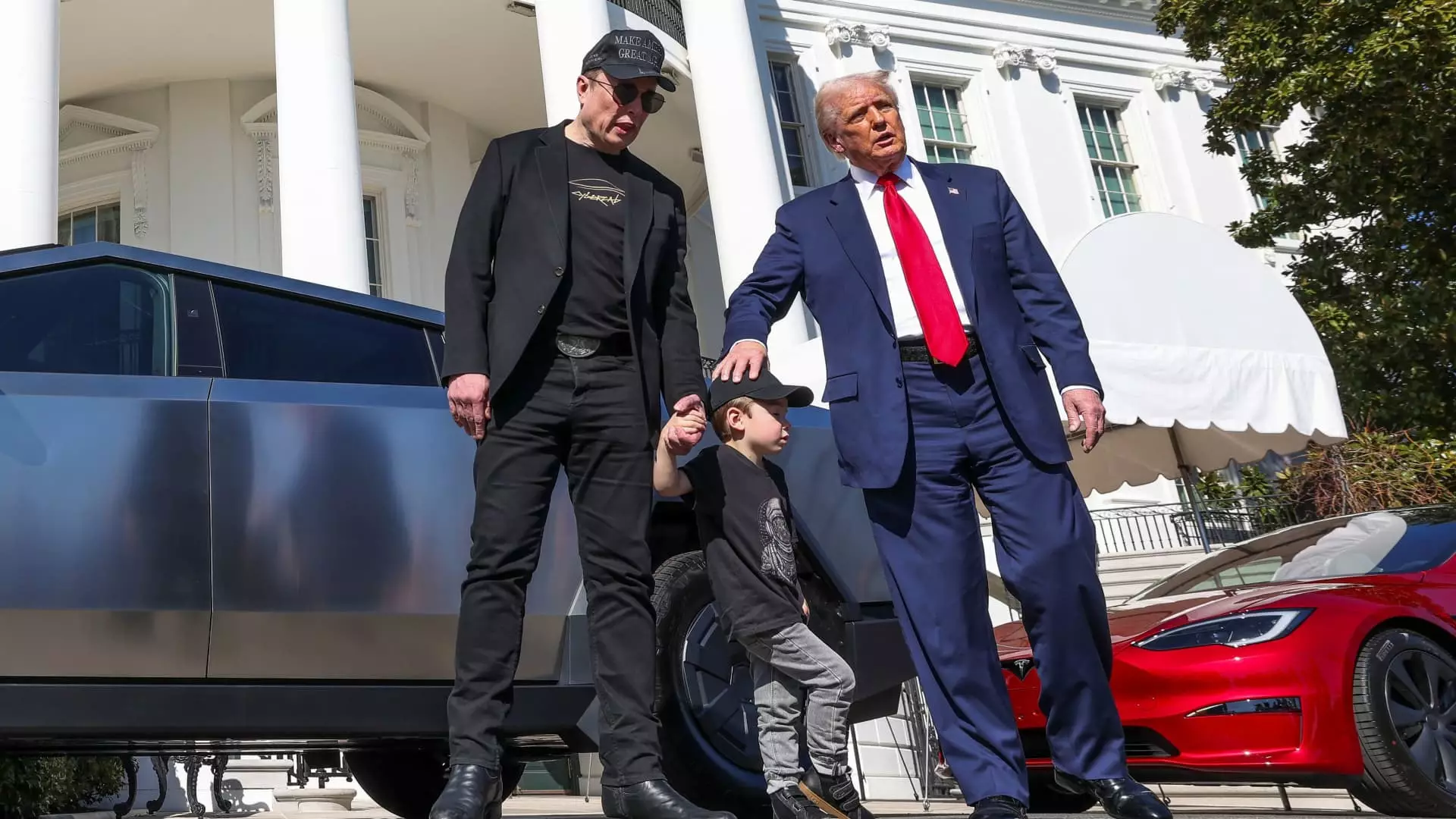Elon Musk is no stranger to controversy, but recent polling indicates that his foray into the murky waters of politics may yield consequences far more detrimental than anticipated. A Morgan Stanley survey revealed that a staggering 85% of participants believe Musk’s political activities are jeopardizing Tesla’s standing as a premier electric vehicle manufacturer. This sentiment is not simply a passing observation; it reflects deep-rooted concerns from stakeholders about the ramifications of intertwining business with the unpredictability of political theater. With shares plummeting nearly 40% this year alone, it seems that Musk’s dual roles as both a tech innovator and a political provocateur may be causing significant self-inflicted harm.
Among the 245 respondents, the results echo a palpable sense of discontent. A notable 45% assessed Musk’s political role as having a “negative” impact on Tesla, while another 40% classified it as “extremely negative.” Only a minuscule 3% believed these activities were beneficial, raising the question: what does it take to persuade a businessman to refocus on his core competencies? Musk’s shift in allegiance to political causes may well be diluting his brand—and by extension, Tesla’s brand—among potential customers and investors alike.
A Decline in Deliveries: A Crystal Ball into Tesla’s Future?
The survey didn’t merely center on Musk’s political pursuits; it delved deeper into stakeholders’ expectations regarding the future of Tesla. Alarmingly, 59% of the participants predicted a decline in deliveries for 2025 compared to the previous year. A significant portion, 21%, expected a drop of over 10%. Vandalism and negative publicity have exacerbated the situation, hinting that Musk’s political antics could be driving a wedge between consumers and the electric future he purportedly champions. With merely 19% of respondents optimistic about a rise in deliveries, a clear narrative emerges: Tesla must recalibrate its focus toward customer-centric strategies rather than political jostling.
The height of Musk’s political intrigue was showcased through his involvement in governmental efforts to slash federal spending under the banner of U.S. government efficiency. Critics have condemned his aggressive tactics and questionable governance, arguing that efficiency shouldn’t come at the cost of effectiveness. Expectations that he could lead his ventures while simultaneously engaging in a task rife with complexity are unrealistic. In an interview, he admitted that leading his businesses amid political distractions had become a “great difficulty.” This candor resonates with the survey findings—the connection between effective leadership and the health of the business can’t be overstated.
Choosing Precarious Paths: Consequences for Tesla’s Stock
While some surveyed indicated that they foresee a meager recovery—with 45% anticipating Tesla shares to climb at least 11% by year-end—the overall sentiment leads to a troubling conclusion. Tesla’s stock has itself become a battleground, echoed in the fears of 36% of respondents who believe it could drop a further 11% or more by December. This volatility speaks volumes about investor confidence, or rather the lack thereof, when they witness their leader distracted by political maneuvers. The juxtaposition of Tesla’s innovative reputation and Musk’s political distractions has painted a grim picture for investors yearning for stability.
To add to the complexity, despite stocks floundering and public relations crises bubbling, Musk’s unwavering support for former President Donald Trump offers him a mixed blessing. While such endorsements may buoy some emotionally charged factions, they alienate numerous potential customers who favor more bipartisan or progressive leadership. Trump’s endorsement—evaluating Tesla vehicles at the White House and branding violence at dealerships as “domestic terrorism”—serves only to deepen the divide within Tesla’s customer base. This illustrates a dystopian brand narrative where Tesla’s connection to political conflicts could overshadow its legacy as a technological innovator.
Musk’s audacious exploits are often the talk of Silicon Valley, but perhaps it’s time for a hard look at the ramifications of those exploits. Distraction from core business activities can lead any established company down a treacherous path, and Tesla’s situation appears to be a case study in political misadventure. The findings from this survey reveal a crucial necessity: for Musk to reconsider where his energies are summoned, as the stakes for both him and Tesla are higher than ever.

